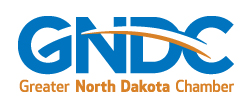-

-
Pres. Trump's Four Coronavirus Relief Executive Action
GNDCMonday, August 10, 2020
Phase Four Coronavirus relief negotiations in Congress have fallen flat in Washington D.C. Despite demands from the executive branch and questions from the impacted public, the House and Senate have not produced final legislation. This past weekend, President Trump decided it was time to take matters into his own hands and created executive action to address concerns over relief. These three memorandums and one executive order have already received heavy scrutiny and will likely wade through many legal challenges. It is widely believed and accepted that Congress holds the authority to issue appropriations, which some of these contain. The goals of his actions are to address economic fallout, provide relief to individuals, and address Congress's impasse. While the executive actions don't address second-round stimulus checks, they address areas that have sunset or provide temporary relief.
Executive Action Summary:- Unemployment Benefits: Reinstated the expanded unemployment benefits that expired at the end of July. Initially, the expanded unemployment benefits were $600 weekly but the executive order set them at $400 weekly with the states needing to fund 25% or $100.
- Student Loans: Extended deferment of federal student loan payments and interest through the end of the year.
- Payroll Tax Holiday: Initiated a payroll tax holiday on Federal payroll taxes, i.e. Social Security and Medicare. This provision is confusing whether this will be a true holiday or a deferment on payment to another date.
- Eviction Moratorium: This order will give select federal agencies the authority to continue the moratorium of evictions from federal housing but are not a mandate.
In the coming days and weeks, we will see how these executive actions go beyond first glance interpretation and trickle into implementation and usage. Congress still has work to do to address holes in the relief to better position business to fulfill its role within the economy.Tell a Friend
-
The catalytic leader and unifying voice for economic prosperity throughout North Dakota.

